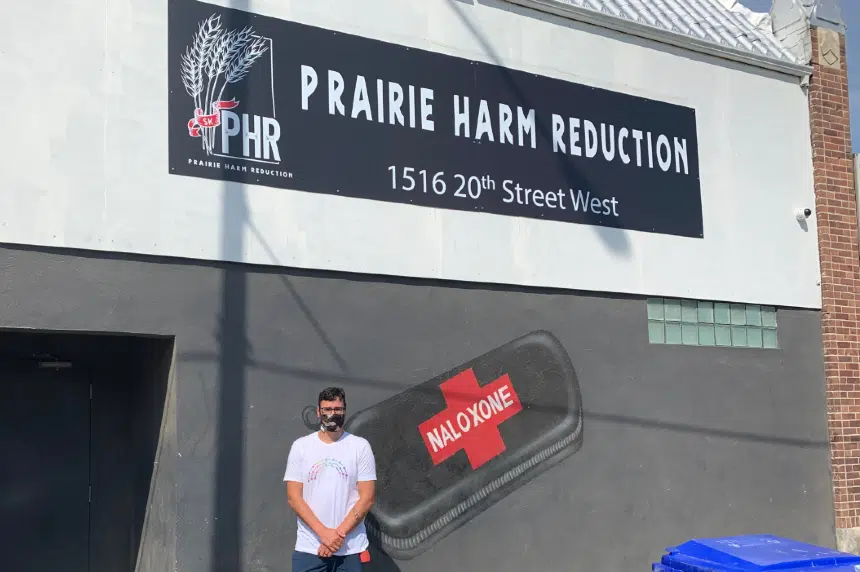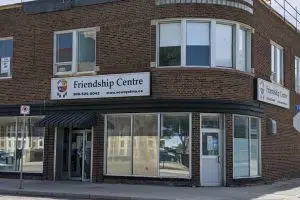A needle, a vial of naloxone and someone who knows how to use them — for drug users who take too much, these may be the only things that stand between them and joining the list of those who’ve died by drug overdose in Saskatchewan.
That list is getting longer, faster than it ever has before in Saskatchewan. But there are some people who are on the front lines of this crisis who have made it their mission to keep people alive and help them get healthy. They’re the ones handing out kits and providing counselling, and in some cases they’re literally saving people’s lives.
As Saskatchewan has dealt with the COVID-19 pandemic in the last year, another crisis has taken a back seat — deaths by drug overdose.
In 2020, there were 273 confirmed drug overdose deaths in the province — 96 more than in 2019 — with another 67 suspected cases waiting to be confirmed.
This year hasn’t been any better, with 125 drug toxicity deaths suspected and 46 confirmed in just the first 153 days of the year.
In this series, Hidden Crisis, we get to know the people in the middle of the crisis, those who’ve died, those left behind, and those who are tasked with helping stem the flood of bodies.
Upwards of 15 to 20 people a day use the only permanent safe drug consumption site in Saskatchewan. Prairie Harm Reduction (PHR) opened in Saskatoon on Oct. 1 and, while the start was slow, the clinic has had a steady increase in clients with new people coming all the time.
Jason Mercredi, the executive director at PHR, said staff members have known a lot of people in the last year who’ve died of overdoses.
“We had a client who was coming in, and we had done multiple suicide interventions with them, but then when we were closed, they ended up overdosing and dying,” said Mercredi.
He said they’re providing a lot more mental health supports than they thought they would. Mercredi said clients will come in after a friend died of an overdose and need that help.
“It’s becoming a fairly regular occurrence and we’re seeing new clients come all the time because people are scared of overdosing and dying. The need is clearly growing,” said Mercredi.
READ MORE:
- Families left behind
- Recovering addict shares story of pain and triumph
- Helping others out of the dark
PHR also takes it upon itself to warn the community about drugs. This spring, it warned about a drug a client brought in, used and overdosed on, and it took 27 shots of naloxone to revive them.
Mercredi said people appreciate the service and want to use it. Until this summer, opening hours had been a problem; PHR could only afford one person to operate the site so hours were limited.
Mercredi had wanted to open the site last spring, which was when the overdose problem really started taking off, but PHR was passed over for funding in the 2019-20 provincial budget.
It took another six months to get the money together to open the site.
“We just said, ‘You know what? Whether we have the money or not, we need to set the deadline and open because clearly there’s a need here,’ ” explained Mercredi.
“We’d like to be able to just focus on saving people’s lives but instead I’ve got to figure out how to generate way more fundraising revenue than we’re used to.”
In the recent provincial budget the government again chose not to fund the operation of the safe consumption site. But the community responded, donating more than $180,000 which is allowing PHR to open longer.
Prairie Harm Reduction also offers services to its clients around wound and vein care, and helping people get on Hepatitis C treatment, which Mercredi said has been a big success.
He said many clients are asking for drug-checking services — testing their drugs to see if there’s anything that could harm them.
Mercredi said he wants to be able to give out testing strips that can tell someone if their drugs contain fentanyl, which can be deadly at even very low doses.
“So somebody will buy what they think is hydromorphone or what they think is MDMA and then it’ll actually be laced with fentanyl,” said Mercredi.
The crisis isn’t happening because of the COVID-19 pandemic; according to Mercredi, it’s been coming for a while. Mercredi said he’s watched overdose deaths rise across drug trafficking corridors in B.C. and Alberta for years.
Without intervention on a government scale, Mercredi believes the deaths are only going to get worse.
The Newo Yotina Friendship Centre in Regina also has opened an overdose prevention site. It applied to the province in December under a temporary rule change that gave authority to provinces from the federal government in a bid to have such sites approved faster.
The friendship centre was approved in March and the site opened in May.
The need for the site certainly exists in Regina; in 2020 and the first three months of 2021, there have been 147 confirmed drug overdose deaths in the city. The next highest city is Saskatoon, at 76.
Speaking before the approval, Michael Parker, executive director of the friendship centre, said people kept asking about it.
“The clients who are attending the centre now for our other services are asking, ‘When is this going to open?’ There’s other community agencies that are asking because they want to be able to refer their clients to have access to this type of service,” said Parker.
“This is not a new concept,” Parker said later. “This is being done in other major centres across Canada. Regina is late to this. We’re the late adopter.”
The approval change from the federal government means the site can only operate until September.
“Will it be needed after September? Likely,” said Parker.
But Parker plans to apply for permanent approval from the federal government.
“The long-term sustainability is kind of my biggest concern going forward,” said Parker.
Those at the friendship centre are seeing the need but they’re not the only ones trying to address it. AIDS Program South Saskatchewan (APSS) also runs some harm-reduction programming.
The group is focused on preventing blood-borne infections like HIV, Hepatitis C and STIs but also runs a needle exchange that hands out clean needles, condoms and naloxone kits.
The APSS needle exchange is one of the busiest in the province, with more than 28,000 visits in 2020 and distributing more than 1.4 million needles.
“This extensive access to people who are directly affected by opioid overdose hospitalizations and deaths, that gives APSS the opportunity to do more as far as opioid overdoses are concerned,” explained Vidya Reddy, education and information specialist at APSS.
In the last year, its naloxone program has taken off. In 2019 APSS gave out 208 naloxone kits, but in 2020 that went up to 2,034 kits with 984 of them actually used to reverse an overdose.
“That’s the reason why it’s absolutely important that it’s all hands on deck and everyone that can do something about the opioid overdose crisis, it’s important for all of us to be involved,” said Reddy.
Reddy said in the past year APSS lost between 10 and 15 clients to overdoses.
“We know these users … It has become an urgent need for us as an organization too, to do more,” she said. “That’s the reason why we have become so much more involved.”
Nearly across the board, those working to help people with addictions issues say that more needs to be done. Overdose deaths are only going up and if deaths continue at the rate they’ve been at for the first three months of the year, 2021 will surpass 2020’s record number.
Hear more about the safe consumption sites here.












